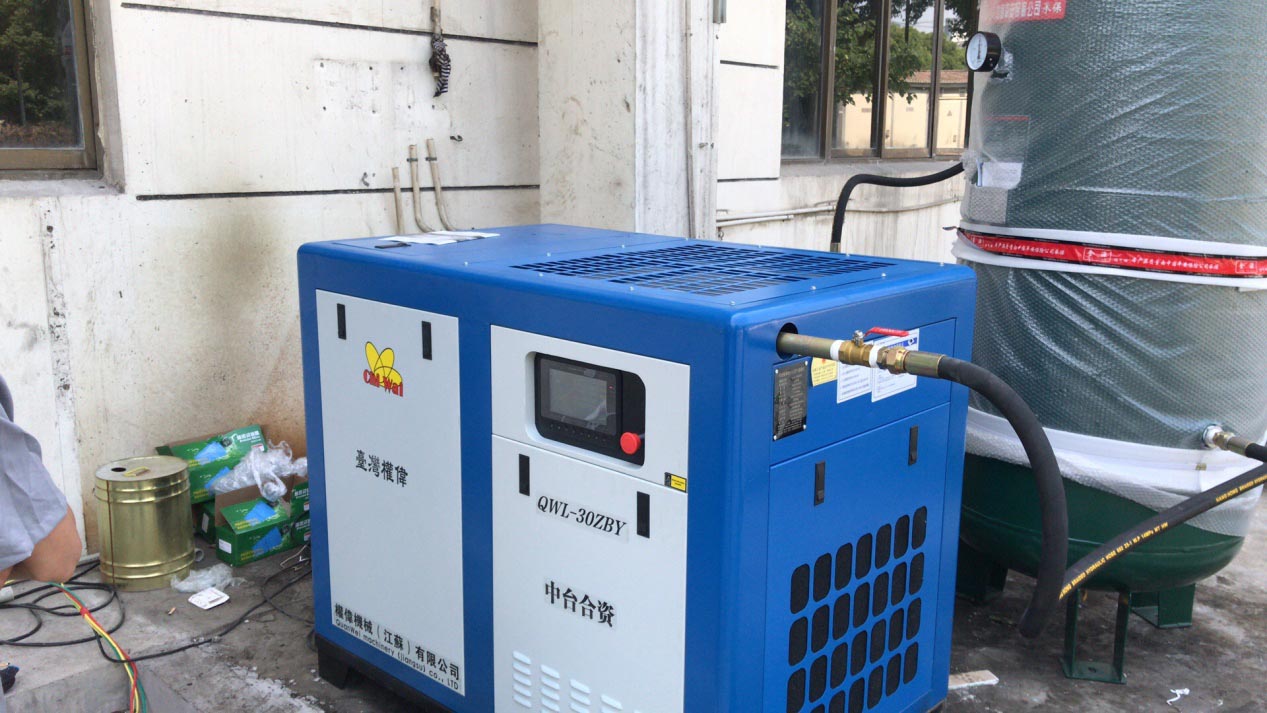Screw air compressors are widely used in various industries to generate compressed air, which is essential for powering pneumatic tools and equipment. However, like any mechanical equipment, these compressors are prone to faults and failures. In this article, we will discuss some common troubleshooting and maintenance techniques for screw air compressors.
1. Insufficient or No Pressure Output:
One of the most common issues with screw air compressors is the inadequate or no pressure output. Several factors can cause this problem, such as worn-out compressor seals, damaged valves, or clogged filters. To troubleshoot this issue, start by checking the compressor oil level and ensuring it is at the recommended level. Next, inspect the air intake filters and clean or replace them if necessary. Additionally, examine the valves for any signs of damage or leakage. If the problem persists, consult a professional technician for further inspection.
2. Excessive Noise or Vibration:
If you notice unusual noise or excessive vibrations coming from your screw air compressor, it is crucial to address the problem promptly. Vibrations can be caused by misaligned couplings, loose bolts, or worn-out bearings. To resolve this issue, carefully inspect the compressor and tighten any loose bolts or connections. Ensure that the couplings are correctly aligned and adjust them if needed. If the noise or vibrations persist, it may indicate a more serious internal problem, requiring the expertise of a qualified technician.
3. Overheating:
Overheating is another common problem in screw air compressors, often caused by insufficient cooling or lubrication. It is vital to monitor the compressor's temperature regularly and take immediate action if it exceeds the recommended range. To prevent overheating, ensure that the cooling fans are clean and functioning correctly. Regularly inspect and change the compressor oil according to the manufacturer's recommendations. If the problem persists, it could be due to a malfunctioning thermostat or a faulty temperature sensor, which requires professional attention.
4. Oil Leaks:
Oil leaks can occur in screw air compressors due to worn-out seals or gaskets. These leaks not only lead to oil wastage but can also damage other components. To tackle this issue, inspect the compressor for any visible oil leaks and replace the faulty seals or gaskets. It is crucial to use the recommended type and grade of oil to prevent leaks. Regularly check the oil level and maintain it within the specified range.

5. Regular Maintenance:
To ensure optimal performance and longevity of your screw air compressor, regular maintenance is essential. This includes checking and changing the compressor oil, cleaning or replacing air filters, inspecting and tightening connections, and lubricating moving parts as per the manufacturer's guidelines. Regularly monitor and record the compressor's performance, such as pressure output and temperature, to identify any potential issues early on.
In conclusion, screw air compressors are reliable and efficient machines when properly maintained. By following these common troubleshooting and maintenance techniques, you can minimize downtime, extend the lifespan of your compressor, and ensure uninterrupted operation in your industrial processes. However, it is always recommended to consult a qualified technician for complex issues or if you are unsure about any maintenance procedures.